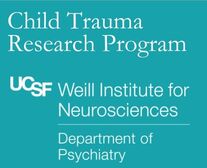The Biological Embedding of Traumatic Stress:
|
Dr. Hagan was the Co-Investigator of a pilot study based at the UCSF Child Trauma Research Program, under the leadership of Dr. Nicole Bush and Dr. Alicia Lieberman, designed to test whether an empirically validated parent-child psychotherapeutic treatment improves biological functioning (e.g., neuroendocrine system functioning, inflammatory processes, cellular aging) in young, traumatized children and their biological mothers. Dr. Hagan's work focuses on the associations between parent-child relationship functioning, chronic levels of cortisol activity, and markers of inflammation.
Relevant Publications:
Psychophysiology and Interpersonal Experiences in Young Adult Women |
Stress Trauma and Resilience Lab
|
Department of Psychology
|
San Francisco State University
|
Copyright © 2021


